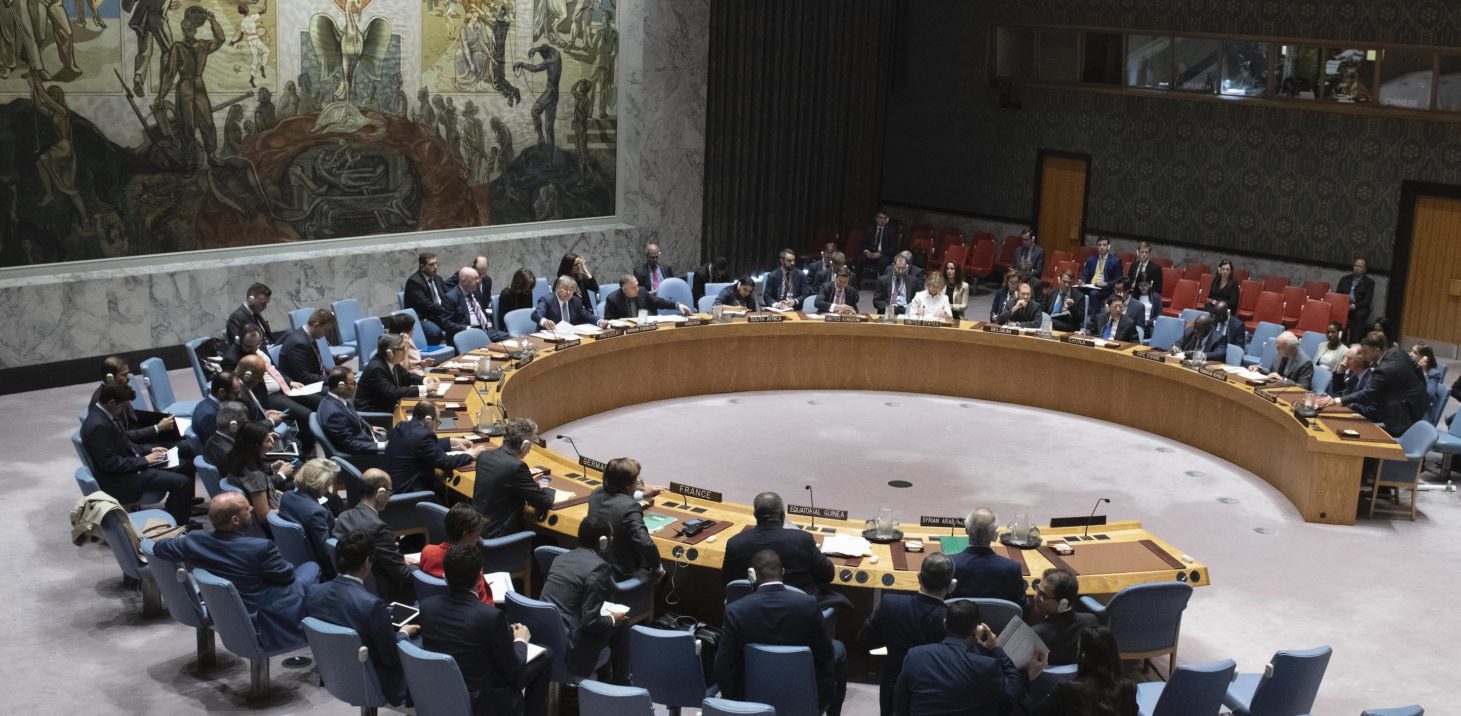

Serving as a credible advisor to UN Security Council (UNSC) members, the Global Centre urges the Council to uphold its commitment to R2P and the protection of civilians. It does so by utilizing bilateral meetings with states at their permanent missions to the UN in NY, confidential briefings and workshops, letters and statements, and advocating for regular and formal briefings from UN human rights mechanisms in an effort to bring attention to atrocity situations. Global Centre staff provide expert advice to UNSC members regarding the inclusion of R2P language in resolutions on relevant country situations and thematic areas, and encourages the Council to view situations through an atrocity prevention lens.
Mobilizing the members of the UNSC that are also members of the broader Group of Friends of R2P has been a key goal of the Global Centre’s UNSC engagement. In this regard the Global Centre hosts regular dinners amongst states serving on the UNSC who are also members of the Group of Friends to discuss situations where populations are facing, or are threatened by, mass atrocity crimes. UN Security Council Ambassadors come together to explore strategic steps to advance practical measures aimed at preventing or halting atrocities. Such meetings also provide a space to discuss ways to improve the UN Security Council’s working methods.
There have been increasing calls by UN member states and civil society for voluntary restraint on the use of the veto by the Permanent Members of the Security Council, known as the “P5,” in mass atrocity situations. The failure of the UNSC to protect civilians from mass atrocity crimes – genocide, war crimes, ethnic cleansing and crimes against humanity – has severely impaired its credibility in the eyes of the wider UN membership and the public.
Since October 2011 the veto has been exercised thirteen times by two of the UNSC’s permanent members – Russia (thirteen) and China – (seven, plus one abstention) on resolutions meant to address crimes against humanity and war crimes committed against the Syrian people. Those vetoes undermined the legitimacy of the UNSC, shielded perpetrators from accountability and cost lives. The UNSC has similarly failed to pass substantive resolutions regarding the situation in Myanmar, which the Human Rights Council-authorized Fact-Finding Mission has determined may amount to genocide.
Over the past few years there has been growing momentum around calls for the UNSC to voluntarily refrain from using veto in atrocity situations. Over 120 governments – in addition to two UN observer missions – have supported calls for veto restraint or a code of conduct. The Global Centre for the Responsibility to Protect has been working closely with civil society organizations, including the Elders, and member states in issuing joint calls for restraint.
Veto restraint in atrocity situations was first suggested by French Foreign Minister Hubert Védrine in 2001 and later announced again by President François Hollande in his address to the UN General Assembly in 2013, and further articulated in more detail by French Foreign Minister Laurent Fabius in an op-ed in the New York Times on 4 October 2013.
During 2015 France launched a “Political Declaration on suspension of veto powers in cases of mass atrocity,” open to all member states to support. The Political Declaration is focused only on the five permanent members of the UNSC and calls for voluntary restraint of the use of the veto in cases of mass atrocities. As of July 2022, the Political Declaration was supported by 104 member states and 2 UN observers.
In 2013 the Accountability, Coherence and Transparency (ACT) Group was launched, aiming to improve the transparency of the UNSC by suggesting that states should explain why the veto has been employed in each situation. Subsequently, the now 25-member ACT group proposed a “Code of Conduct regarding Security Council action against genocide, crimes against humanity and war crimes” in 2015. The Code of Conduct calls upon all members of the UNSC – elected and permanent – to not vote against any credible draft resolution intended to prevent or halt mass atrocities. As of 2022 the Code of Conduct has been signed by 121 member states and 2 observers.
Ralph Bunche Institute for International Studies
The Graduate Center, CUNY
365 Fifth Avenue, Suite 5203
New York, NY 10016-4309, USA